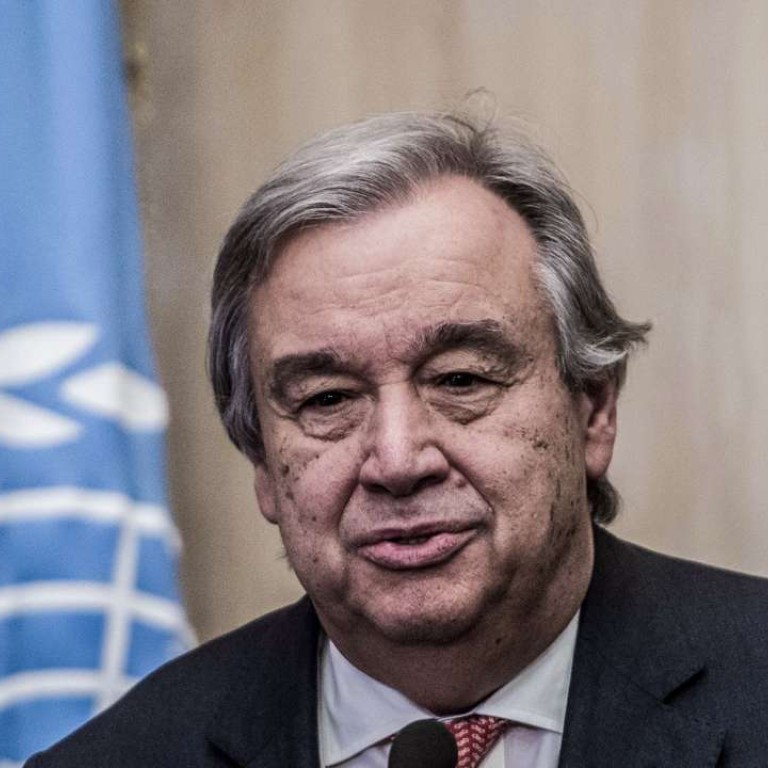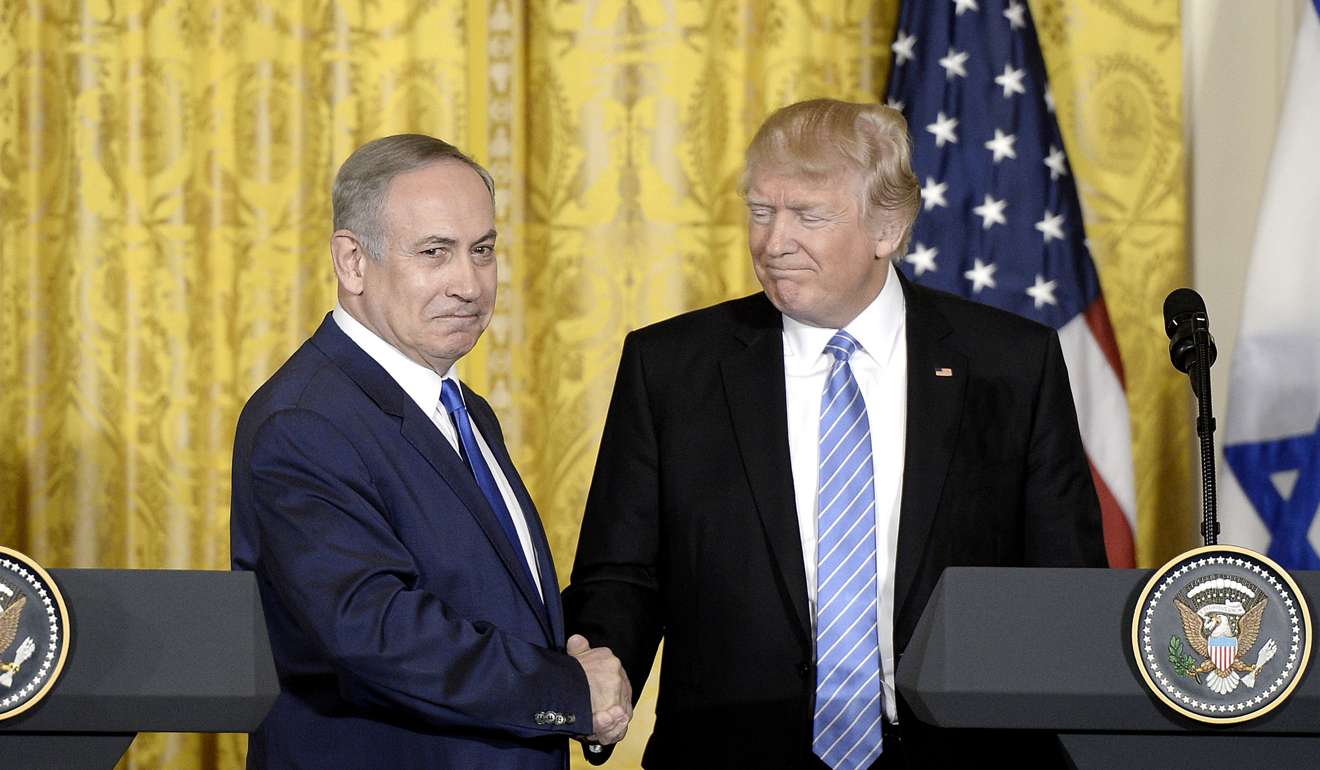
Update | Two-states the only solution in Israeli-Palestinian conflict, says UN chief — but Trump disagrees
Trump asks Israeli PM Netanyahu to slow down settlements in the West Bank
United Nations Secretary-General Antonio Guterres warned on Wednesday against abandoning the idea of a two-state solution to the Israeli-Palestinian conflict, saying there was “no alternative”.
“There is no alternative solution for the situation between the Palestinians and Israelis, other than the solution of establishing two states, and we should do all that can be done to maintain this,” he said during a visit to Cairo.
But US President Donald Trump said Wednesday he was open to a one state solution to the Israeli-Palestinian conflict if it is acceptable to both sides.
“I’m looking at two state and one state, and I like the one that both parties like. I’m very happy with the one that both parties like. I can live with either one,” Trump said at a press conference welcoming Israeli Prime Minister Benjamin Netanyahu to the White House.
“I thought for a while the two-state looked like it may be the easier of the two, but honestly, if Bibi and if the Palestinians -- if Israel and the Palestinians are happy, I’m happy with the one they like the best,” he said.
Trump directly asked Israeli Prime Minister Benjamin Netanyahu to slow settlements in the West Bank and said he’s confident the two nations can come to a peace agreement with the Palestinians.
Trump and Netanyahu addressed reporters at a press conference Wednesday before the two met privately at the White House. One reporter asked whether Trump and Netanyahu were both on the same page regarding settlements.
“As far as settlements, I’d like to see you hold back on settlements for a little bit,” Trump said while turning toward Netanyahu. “We’ll work something out, but I would like to see a deal be made. I think a deal will be made.”
The idea of a Palestinian state living side-by-side with Israel has underpinned Middle East peace efforts for decades, though the last US-brokered negotiations broke down in 2014.
A senior White House official said on Tuesday peace did not necessarily have to entail Palestinian statehood, and US President Donald Trump would not try to “dictate” a solution.
Trump, at a Washington news conference held after Guterres spoke, left the question open, saying he would work to bring about peace between Israel and Palestinians, but it would be up to the parties themselves ultimately to reach an agreement.
Before the two leaders met, Palestinians warned the White House not to abandon their goal of an independent state.

For Palestinians, who seek a state in the Israeli-occupied West Bank, East Jerusalem and in the Gaza Strip, even the notion of a US retreat from the internationally backed goal of a future Palestine existing alongside Israel was alarming.
“If the Trump Administration rejects this policy, it would be destroying the chances for peace and undermining American interests, standing and credibility abroad,” said Hanan Ashrawi, a senior member of the Palestine Liberation Organisation.
Speaking later in the day at Cairo University, Guterres stressed once again the need to pursue a two-state solution.
“We should not forget the mother of all conflicts is the Israeli-Palestinian conflict,” he said in a wide-ranging speech. “It is important to stress that, in my opinion... there is no plan B other than the two-state solution.”
Guterres earlier this month condemned the Israeli parliament’s move to legalise thousands of settler homes in the occupied West Bank, saying it goes against international law and will have legal consequences for Israel.
Under Israeli law, the move retroactively legalises about 4,000 settler homes built on privately owned Palestinian land.
Guterres also defended this week the choice of former Palestinian Prime Minister Salam Fayyad as the U.N. envoy to Libya, after the United States raised objections and said the United Nations was biased against Israel.


.png?itok=arIb17P0)
